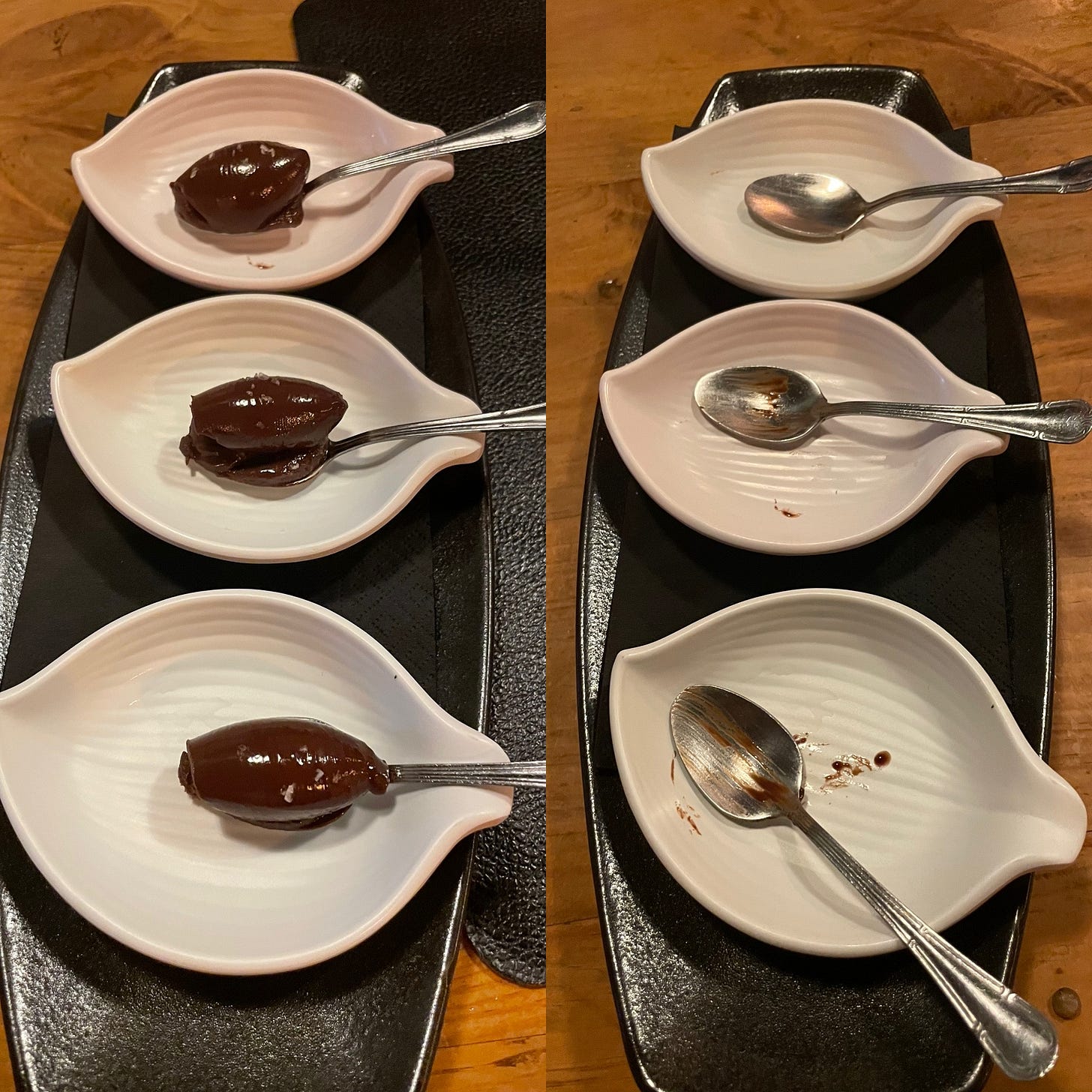Hello friend,
Before we get into today’s musings, I want to share a quote from Anthony Gormley who was featured in yesterdays Sunday Times magazine, “I’ve a sixth of my life left, I don’t want to waste it”. He is 73 and banking on living to age 100. His sentiment, beautifully in line with the ethos of 1000Weeks.
The question on the minds of many approaching their 1000Weeks, is “have I got enough?”…money for the rest of my life.
Like most good questions, the answer is, “it depends”.
The default response is a numerical one. Work out what the individual spends now and extrapolate that to what they might spend in the future. Compare the figure with what they have saved in pensions and investments and decide, using a variety of assumptions including life span, if they have enough put by to fund their future lifestyle. The answer will show one of three things; they have, they haven’t or they have too much. If they have enough, or more than enough, bingo! If not, well, at least they know. But, what now?
Crunching the numbers is a reasonable place to start but is there another way to approach ‘enough’?
The cost of choice
As a Chartered Financial Planner, every client I spoke with told me, almost without exception, “I/we don’t live an extravagant lifestyle” regardless of whether they spent £2,000, £5,000 or £20,000 a month. Which always made me smile inside (in a non-judgmental way of course).
That’s because ‘enough’ is a personal equation with many dependencies and variables.
Like most things in life, ‘enough’ is a choice. The house we live in. The car we drive. The places we holiday. The restaurants we dine in. The wine we drink. The clothes we wear. The face cream we use. The people we hang out with. The charity donations we make. The money we give to our kids. How we ‘spend’ our time. I recall noticing many years ago that the things I spend on are not so different to when I was a Student Nurse (did I mention nursing was my first, brief, career?), they just cost more!
We are all guilty of ‘spending drift’ or Hedonic Adaptation as the Behavioural Scientists call it. The more we earn, the more we spend on living and, this is the biggie, ‘stuff’. All very well but do the trappings move the dial on our happiness levels?
Is the price of your choices worth the cost?
The cost being continuing to work full time in a job you may no longer enjoy, which exhausts and stresses you, saving for a few more years to fund ‘enough’. Essentially exchanging your life and time for money.
Choices and happiness
The evidence1 tells us that true happiness rarely come from more money and stuff. It comes from experiences and, within. The former may well need money, the latter, less so.
Rather than simply annotating and analysing expenditure, I’d suggest you consider some wider questions when deciding how to spend your next phase:
· What’s important to you in life?
· Where and when are you at your happiest? Or at peace?
· Who are you with?
· What are you doing?
Go beyond the answers that immediately come to mind, you know, the one about buying the VW Campervan or spending 3 months in the Far East (or is that just me?). You may still choose to do these things but what are your answers telling you? Maybe they are pointing to a desire for freedom, adventure, being outdoors, spending more time with friends and family, starting the business you always dreamt of, studying for a degree, moving to Madrid to learn Spanish, becoming an activist for Just Stop Oil… The things that bring you most joy might cost much less money than you think.
‘Have’ enough or ‘had’ enough?
Perhaps the real question to ask yourself is not ‘do I HAVE enough?’ but ‘have I HAD enough?’ Is it time to cease trading time for money? What would need to happen to achieve this? Who would you need to speak with? Your partner, family, financial planner, boss?
Remember, you are never going to be any younger than you are today. What are you waiting for?
Do drop me a line, I’d love to hear what ‘enough’ looks and feels like for you.
Until next time my friends
Ruth x
Hat Tips
I have learned to think differently about money over the years from many inspiring people. In 2007, Paul Armson, showed me how to provide answers to questions client’s didn’t even know how to ask. He even wrote a book on Enough. And Carl Richards who I first met in 2010 ish who is just a beautiful thinker. Check out his book The Behaviour Gap and his daily podcast of the same name.
And thanks to Susan Kahn for sharing the Anthony Gormley article with me
The effect of money on happiness was a seminal paper by Kahneman and Deaton in 2010 which indicated that happiness levels plateaued beyond an income of c$75,000pa. This research was updated by Killingsworth some 10 years later to find that reflective happiness (in contrast to experienced happiness) does increase beyond this income level for some. https://doi.org/10.1073/pnas.2016976118



“ Is the price of your choices worth the cost?” I love this Ruth - I might have to steal this quote from you and use it myself in my conversations with clients!
Thanks for another great thought provoking blog - it’s so good to be having these conversations!
Such a thought-provoking edition & one which I read on the back of this article about retirement + play https://toooldforthis.substack.com/p/you-and-i-are-too-old-to-buy-the?utm_source=profile&utm_medium=reader2 Both this and your article inspired me to log off my work laptop and spend 30 minutes playing with my fiction project. A better choice than more slack notifications after an already-long day at work